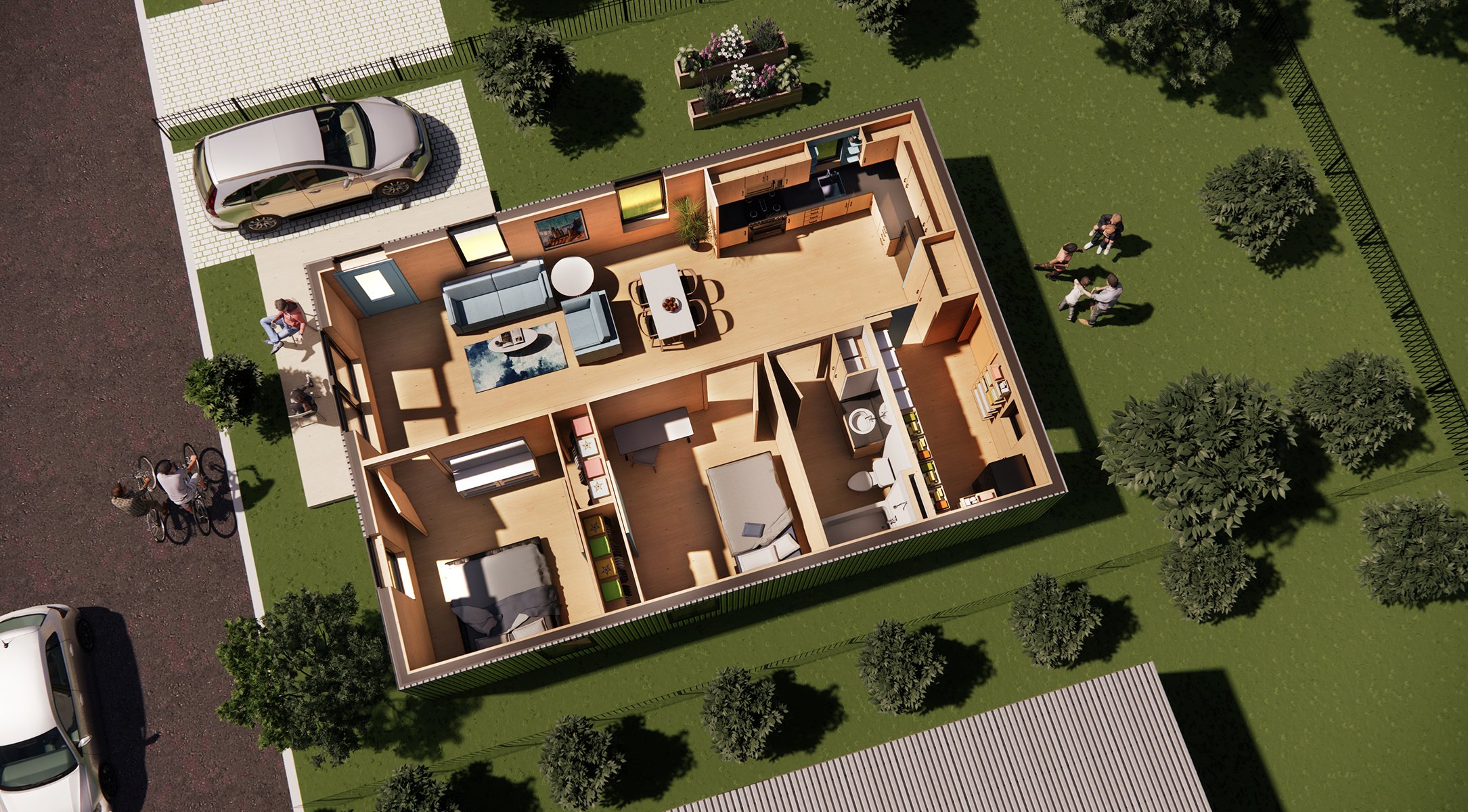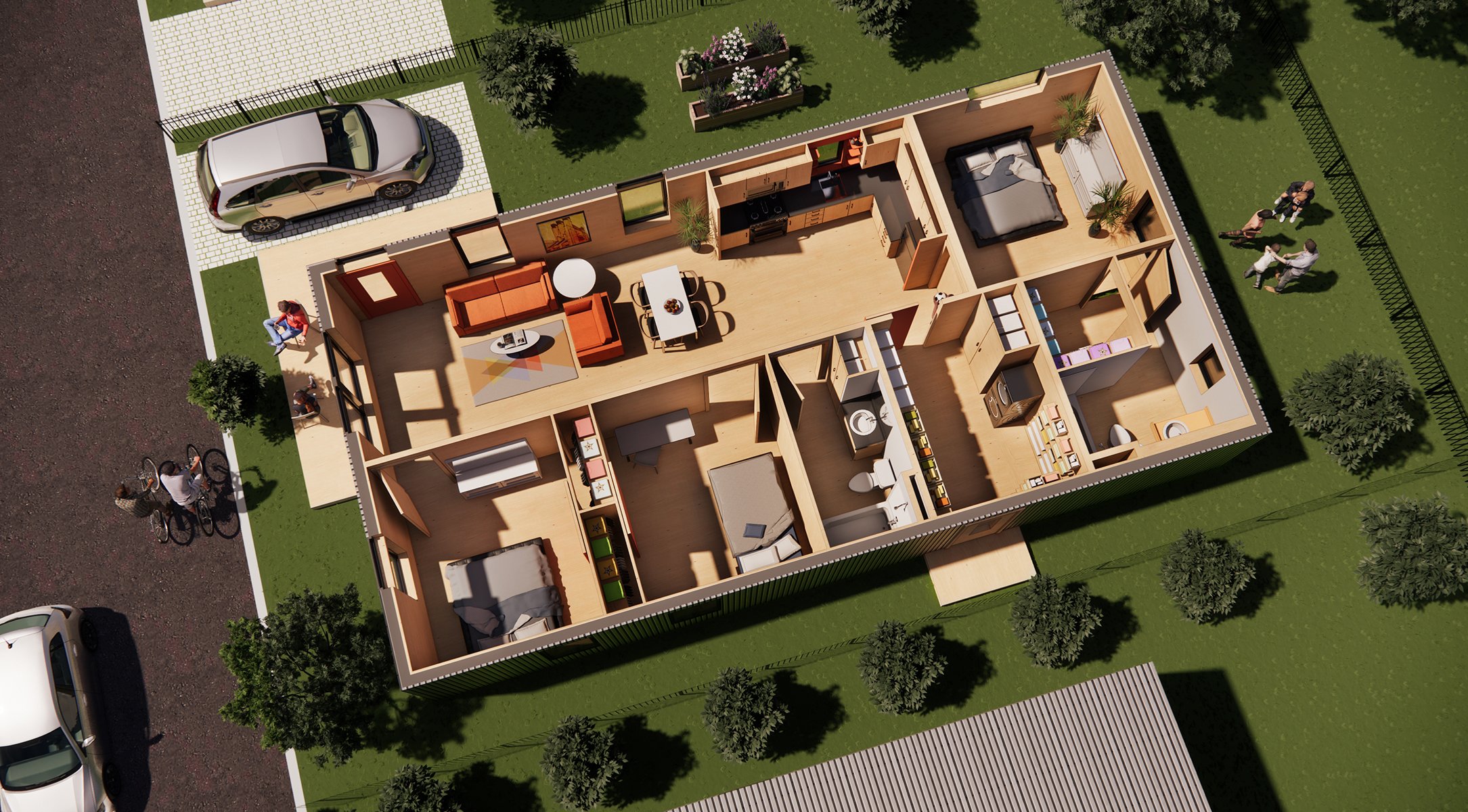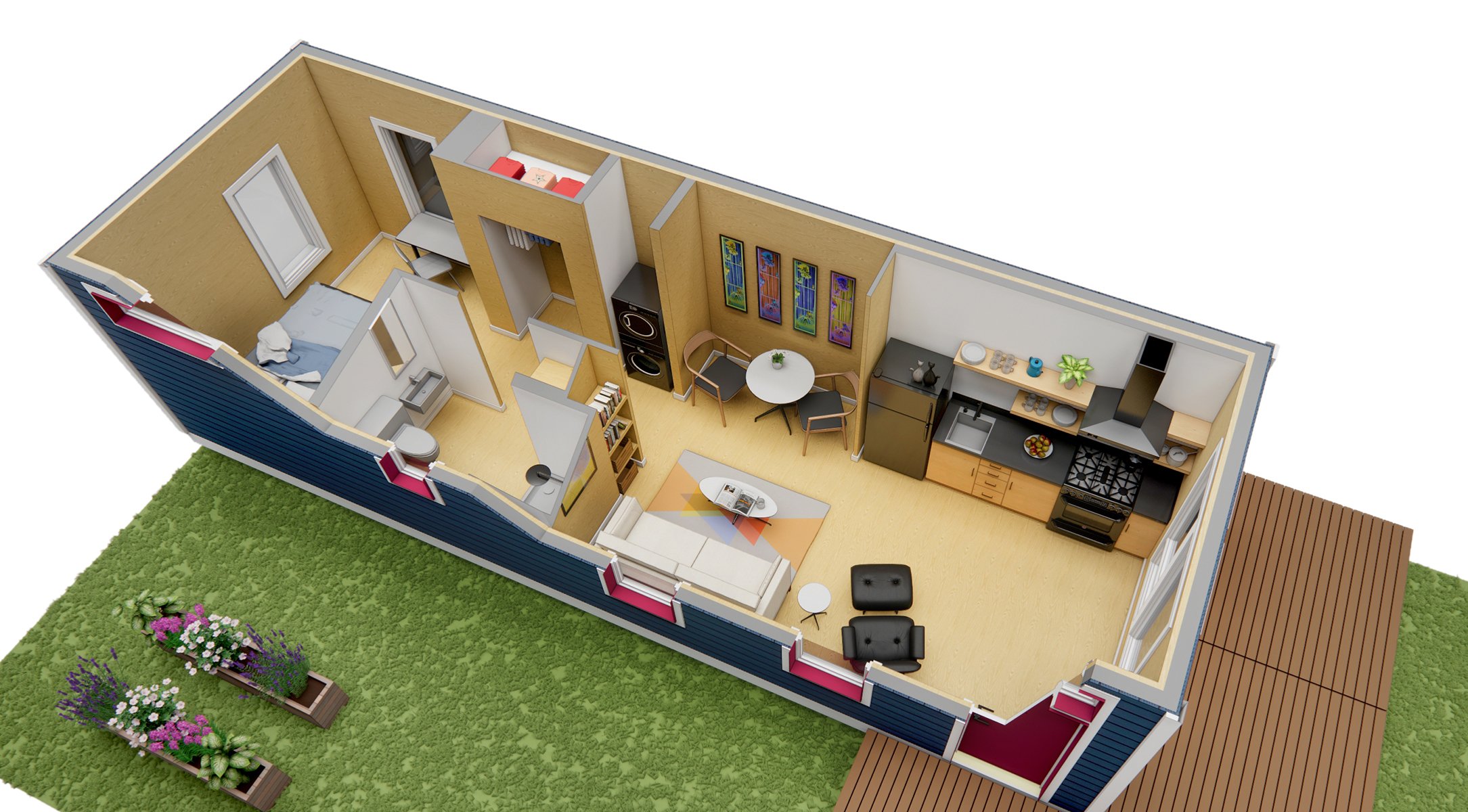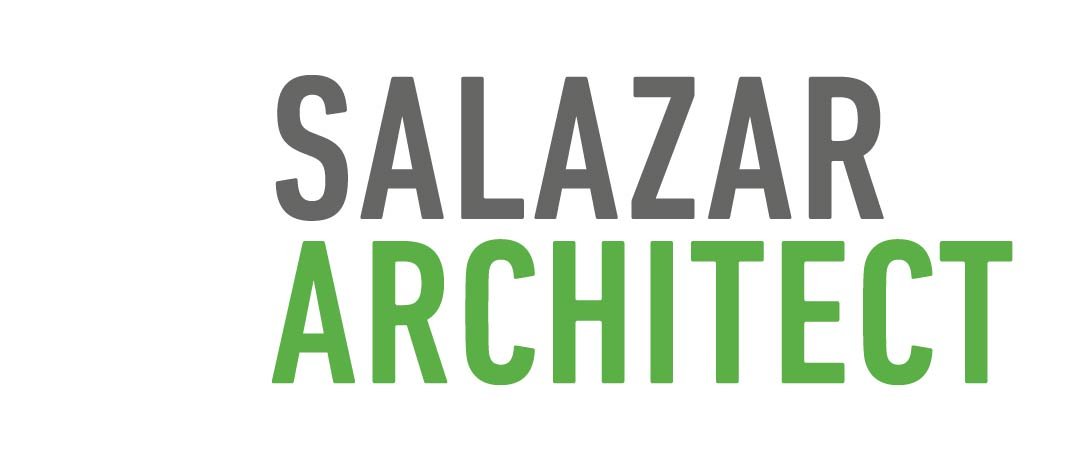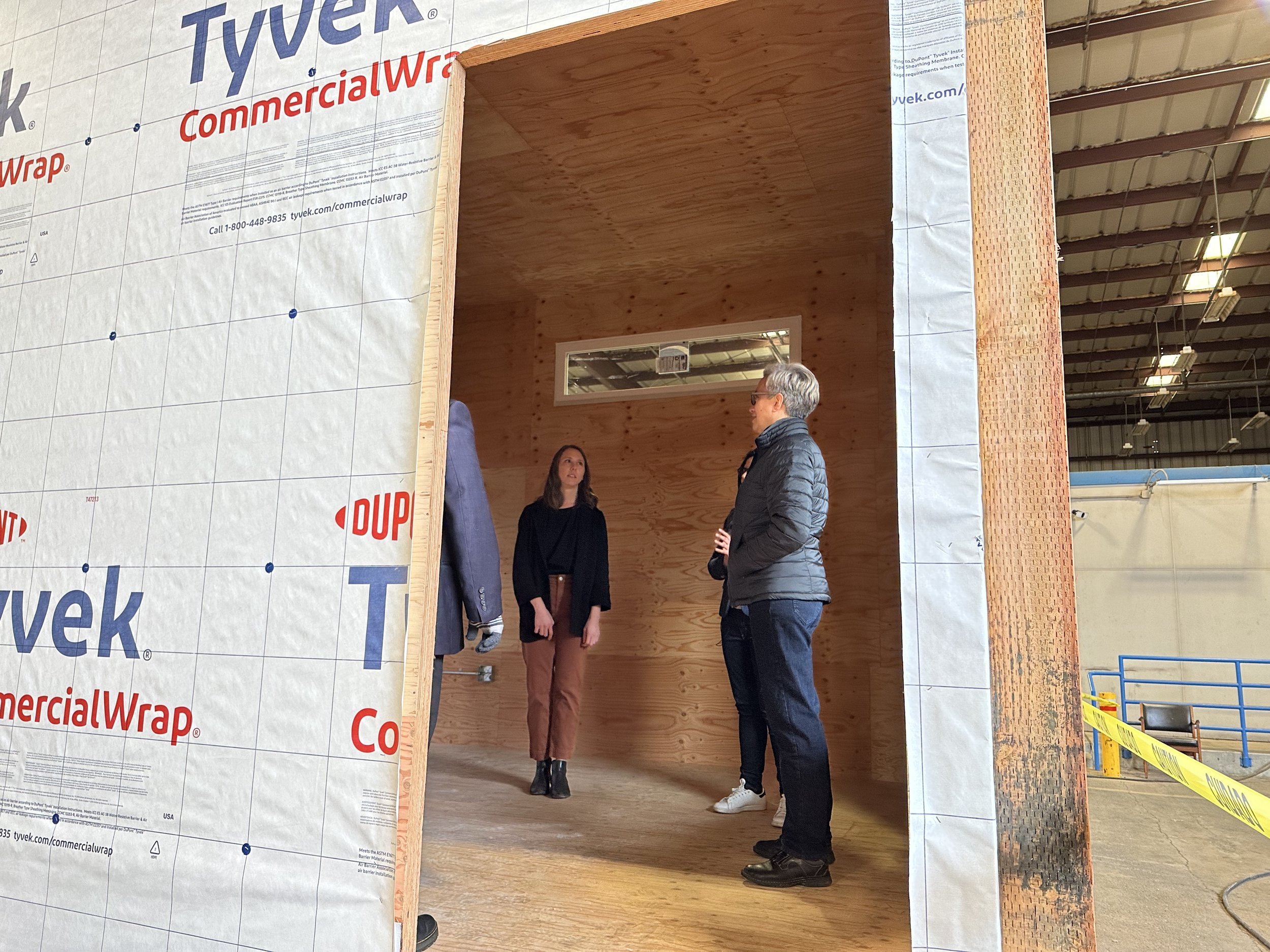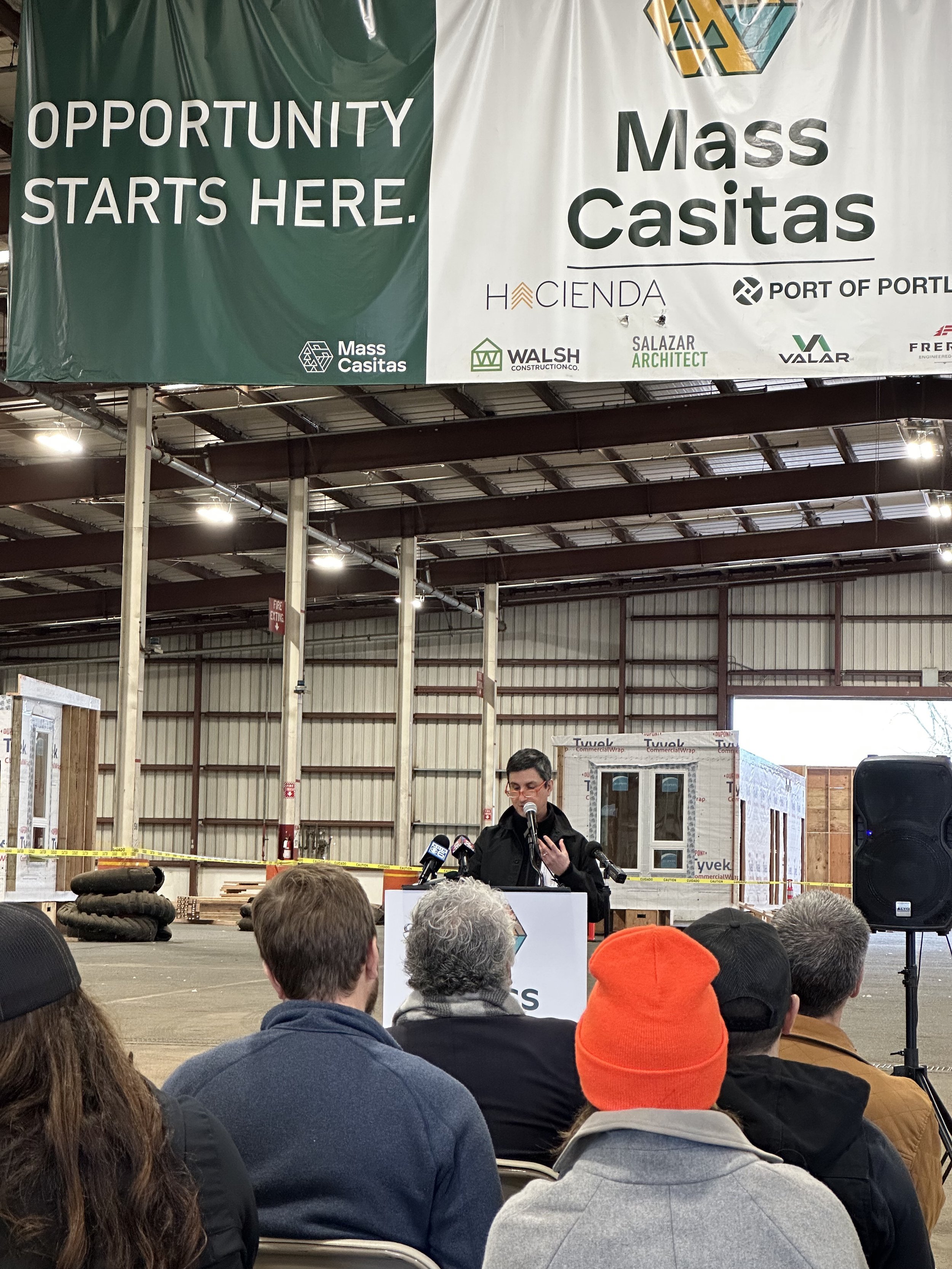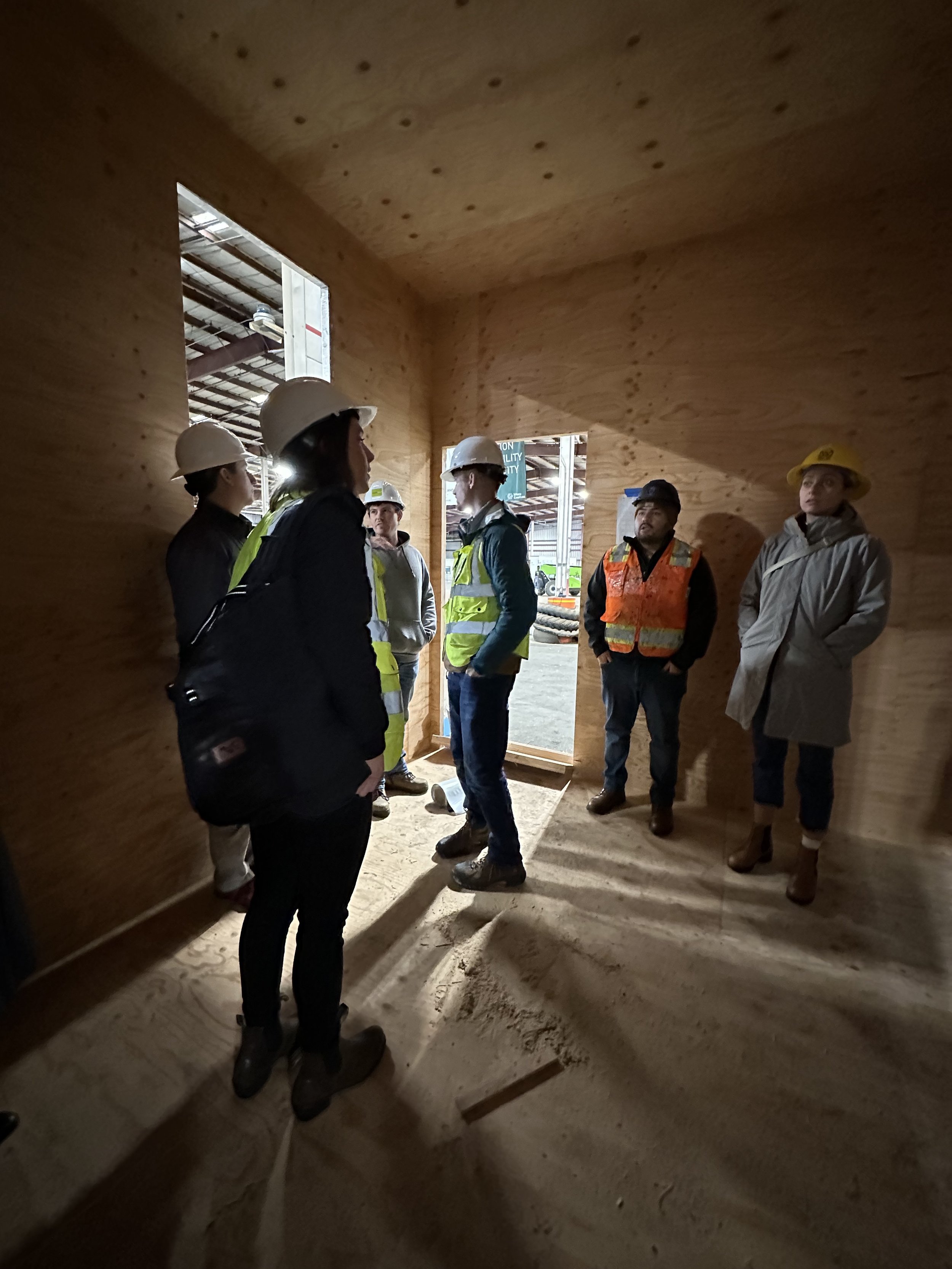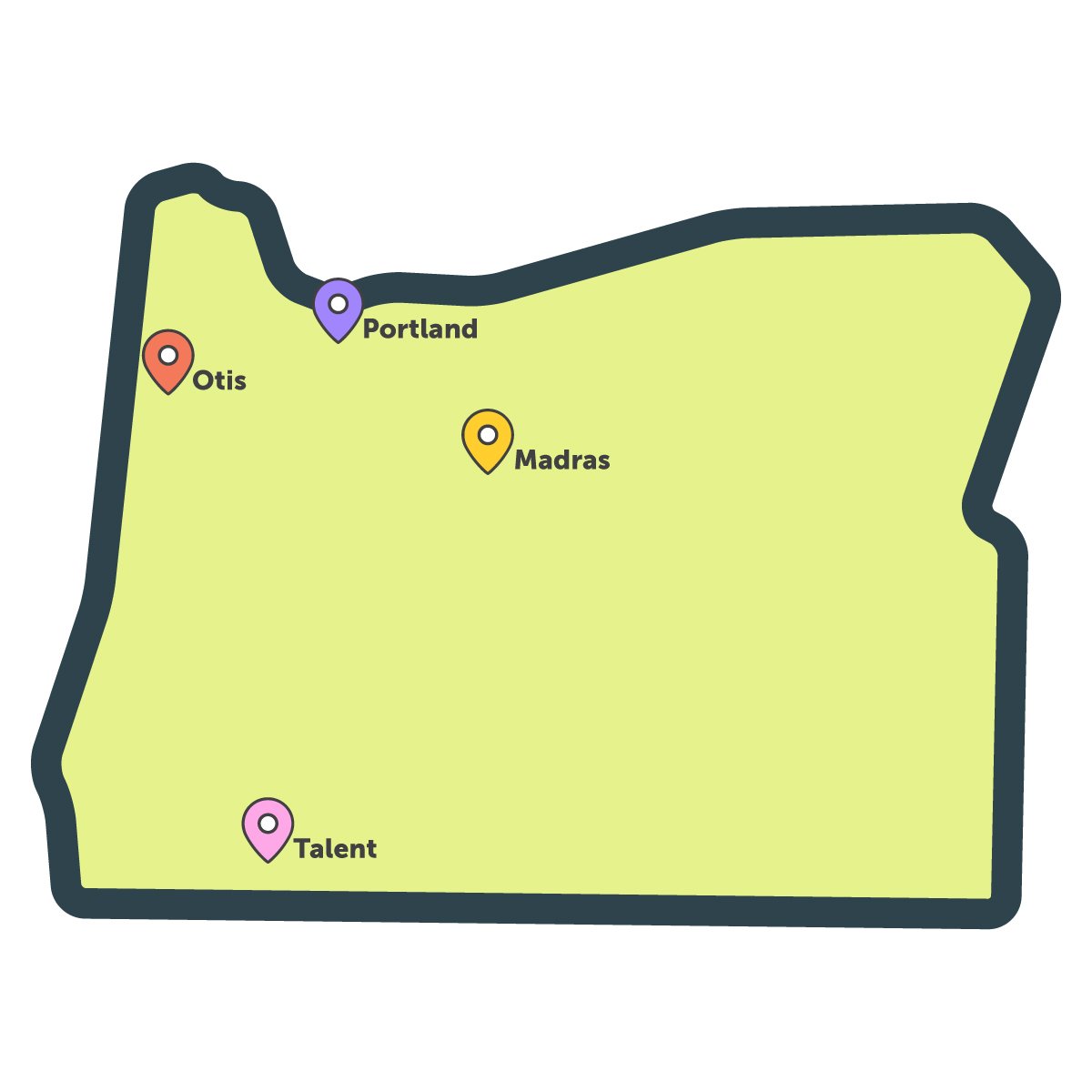Mass Casitas: Modular, Affordable Housing for Oregon
Oregon is facing a housing crisis in nearly every county, and in recent years the scarcity of affordable housing has been worsened by several devastating wildfires that have destroyed homes and displaced entire communities. In response to this broadening housing crisis, Hacienda CDC and Salazar are developing, designing, and testing modular, mass timber housing prototypes. This pilot project sets the stage for (1) creating housing prototypes that can be rapidly constructed and delivered to sites across Oregon; and (2) bolstering economic development through the creation of manufacturing jobs at a future mass timber production facility.
Over the last year, Salazar has been working with Hacienda to design three prototypical housing configurations (studio, 2-bedroom, and 3-bedroom units) that can be adapted to Oregon’s various climatic regions through the use of different foundations and climate controls. Now aptly named Mass Casitas, the modular homes are built from mass plywood panels (MPP) made with Oregon-grown timber and manufactured by Freres Engineered Wood. Six housing units are now under construction at the Port’s Terminal 2, and in a matter of months will be delivered to various locations across the state.
These are amazingly designed homes; they're warm, they're friendly, they don’t feel like a box. And this is going to change what we can do in communities around the state.”
– Governor Tina Kotek, speaking at the recent groundbreaking of Mass Casitas at the Port of Portland T2 manufacturing facility.
Six families in need will soon receive the homes, donated by Hacienda. Families and sites for placement were selected through partnerships with various community-based organizations including CASA of Oregon, Cascade Relief Team, and Community Vision. The sites represent various climates in Oregon – the Willamette Valley, the coast, central Oregon’s high desert, and southern Oregon’s hotter and drier region – allowing the team to test the prototypes in different climatic conditions. And in direct support of the need to replace housing lost to wildfire, the families selected include some who lost their homes in 2020’s Almeda and Echo Mountain fires.
Casitas will be placed across the state.
The sites selected for prototype units offer insight into the various ways Mass Casitas could help address Oregon’s severe housing crisis and disparate housing outcomes at a much larger scale in the future.
Mobile Home Parks
Three of the six sites are located in existing mobile home parks, two of which will provide quality housing for residents displaced by wildfire. As mobile home parks are already set up with the various infrastructure needed to connect with factory-built housing, they are in some ways a natural fit for these initial Mass Casitas placements. Mobile homes have long been a popular approach to affordable housing as they are considerably less expensive than traditional site-built housing and offer a more affordable ownership option for people who have been priced out of traditional affordable housing yet unable to qualify for a traditional mortgage.
The catch, of course, is the necessity of leasing the land where their home is placed. In the past several years, the cost to lease this land has increased sharply across the country as for-profit landowners take advantage of a captive population with limited ability to move their mobile homes. CASA of Oregon is working to combat this trend by supporting mobile home communities in purchasing the park land through cooperative ownership. (Salazar is also working with CASA of Oregon and Coalición Fortaleza at Talent Mobile Estates to design a new site plan and community building. This effort is part of the overall rebuilding of Talent after it suffered mass destruction and displacement as a result of the Almeda Fire in 2020.)
Wildfire Recovery & Emergency Housing
Three of the six units will replace housing stock that burned down in 2020’s wildfires – one in Otis, in addition to the two mobile home park locations. In Otis, the Echo Mountain fire burned 2,500 acres through the Salmon River Canyon, destroying 25% of buildings in the community. Communities need an affordable, quickly-available option for providing shelter in the wake of such disasters – and Mass Casitas is a great example of what that could look like. In addition, modular mass plywood is a fire-resistant wood product: Mass timber building elements char at a slow and predictable rate, providing for inherent fire resistance. During fire exposure, mass timber chars on the outside, which forms an insulating layer protecting interior wood from damage. Designing buildings that are resilient against the increasing threats of wildfire is critical as we continue to live through the impacts of climate change.
Urban Infill
In Portland, two casitas will be placed on a unique site that is otherwise difficult to build on – the property is tucked between several other lots and needed an easement for access. While traditional site-built housing isn't feasible in this location, Mass Casitas makes more sense. The team has partnered with Community Vision for this site – along with providing the land, they are also working with us to ensure that the units are universally accessible. This site placement demonstrates the utility of factory-built housing, like Mass Casitas, as urban infill development.
Affordability for Historically Underserved Populations
Hacienda CDC is leading the Mass Casitas pilot to model a solution to today’s housing crisis while ensuring underrepresented communities have access to safe and affordable housing that is resilient to a changing climate. For over 30 years, Hacienda has provided affordable housing to communities that need it most, addressing the disproportionate threats to housing and opportunity that communities of color and low-income people most often face.
Three of the four initial Mass Casitas sites are in communities with a significant Latino/x population. Latinos are twice as likely to live in areas most threatened by wildfires relative to the overall U.S. population – the combination of the shortage of affordable housing and Latino population growth has pushed people working low-wage jobs in industries such as farmwork, hospitality, or recreation deeper into remote locations that are more susceptible to fires. We know that low-income and BIPOC communities will continue to be the most impacted by climate-related disasters, exacerbating the existing housing crisis and furthering its disparate impacts.
The Mass Casitas project is an apt example of how and why we need innovative, scalable solutions, and an “all hands on deck” approach to address the dire need for more – and more affordable – housing in Oregon. Only with public funding, community development experts, on-the-ground community-based organizations, private companies, and the collective will of all, can we begin to make a dent in solving what is arguably the primary crisis of our times.
